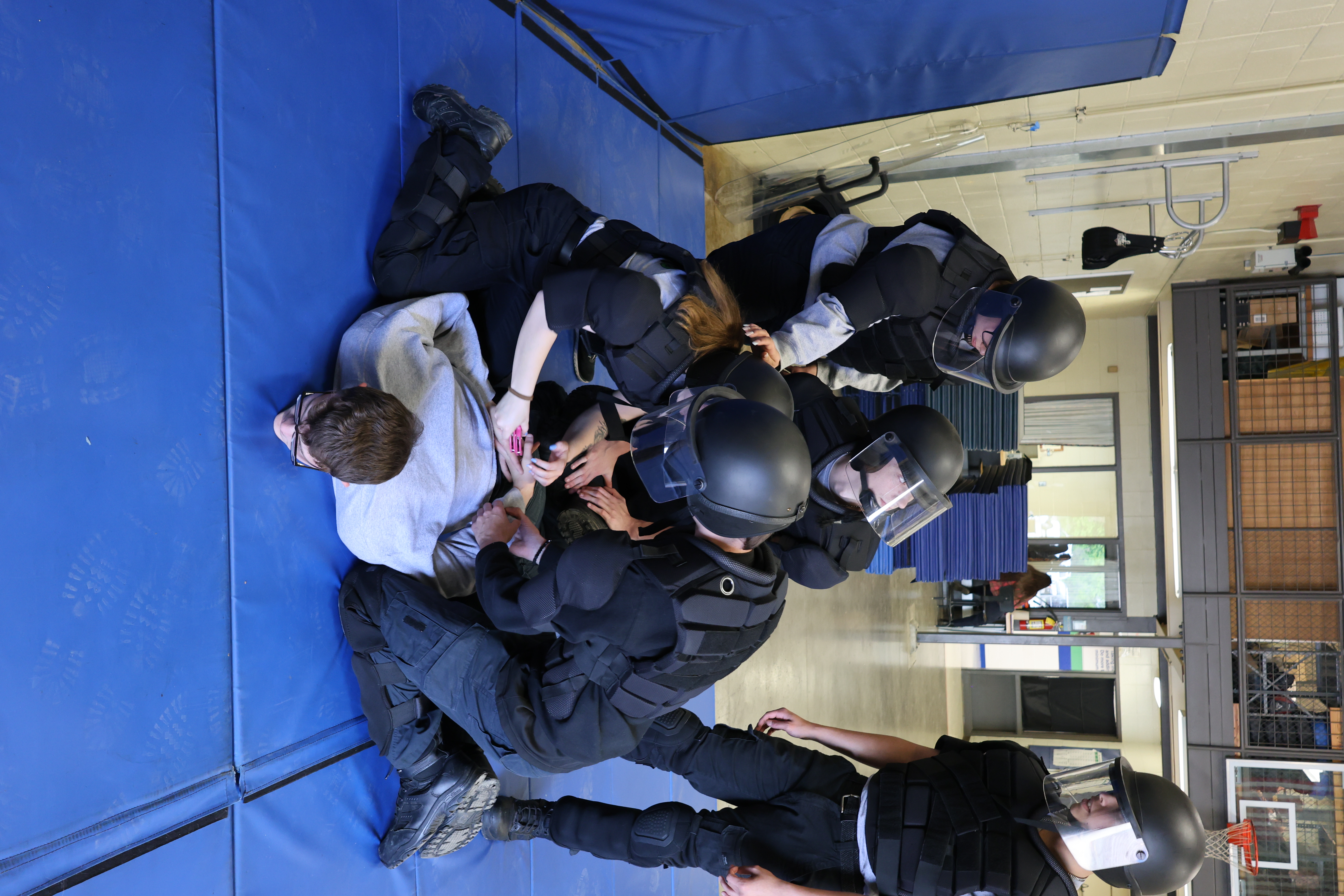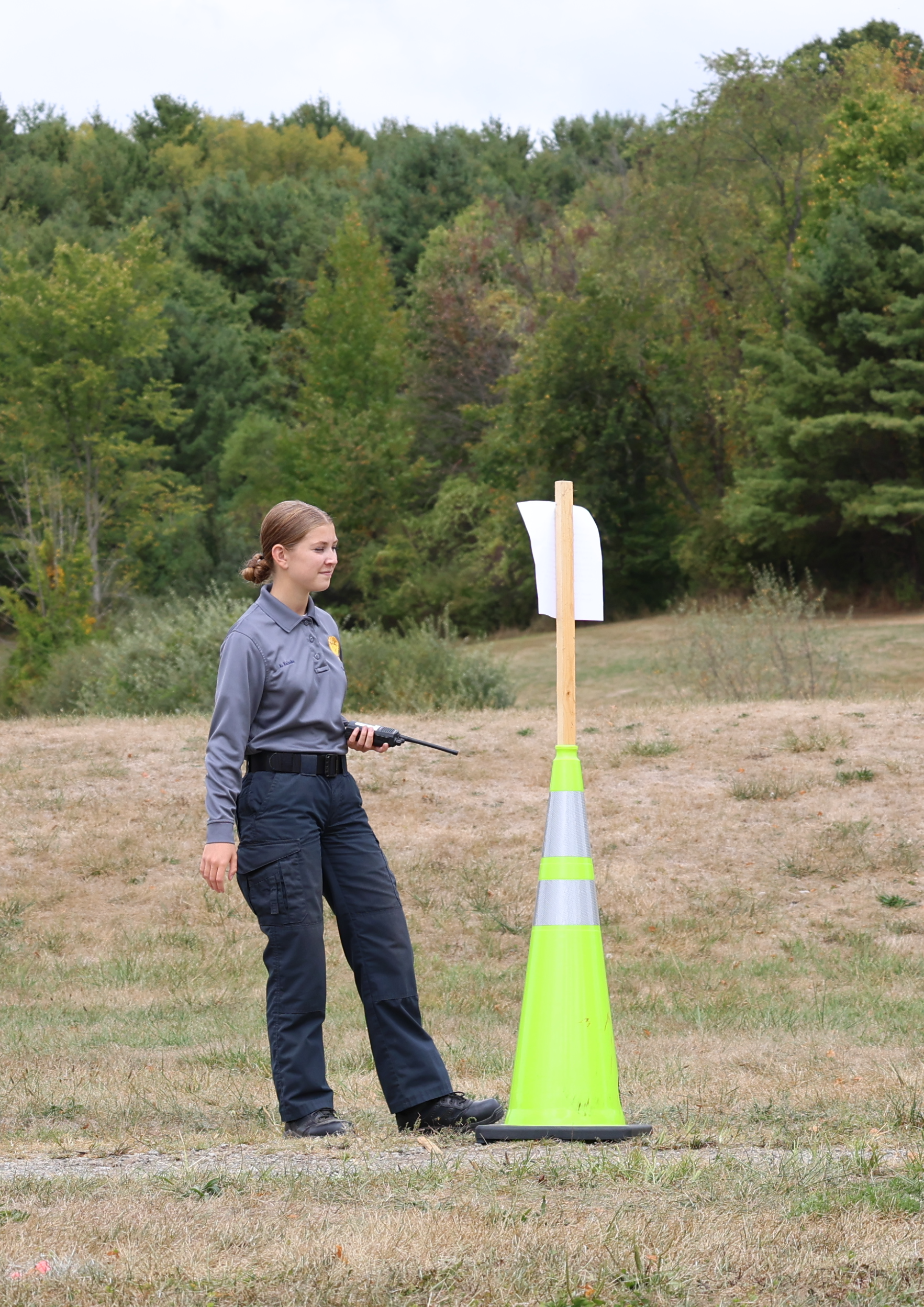Law Enforcement
Instructors | College Credits | Available Certifications | Lab Fees |
|---|---|---|---|
Joseph Fetty |
|
|



Research and analyze current trends and issues in civil and criminal law
Obtain training in the laws of arrest, search & seizure, cuffing, and self-defence
Learn site security management, VIP protection, information security, and emergency response
Utilize emergency telecommunications procedures and practices
What can I do when I graduate? | What would I do in this class? | What can I do with further training? |
|---|---|---|
|
|
|
Law Enforcement students must be able to
Maintain physical fitness standards
Learn mixed martial arts and be willing to demonstrate practical competencies with other students
Maintain paramilitary discipline i.e. military drill and ceremony
Utilize proper telephone and radio policies, procedures and protocols
Take notes from instructor's lecture
Demonstrate water rescue competencies
Instructors | College Credits | Available Certifications | Lab Fees |
|---|---|---|---|
Joseph Fetty |
|
|

